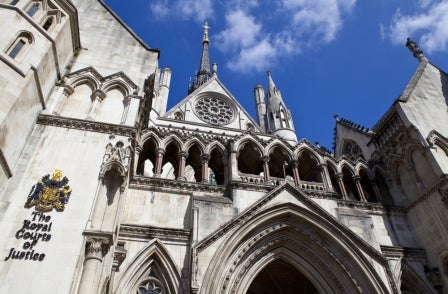
A UKIP general election candidate intended to express a statement of fact when they claimed three Labour MPs knew many of the details of child sexual exploitation in Rotherham, a High Court judge as ruled.
UKIP MEP Jane Collins is defending a libel action brought by the Labour MPs and claimed that she was expressing an opinion in a speech made at her party conference last year which was was broadcast live on the BBC Parliament channel, re-published on the UKIP website and reported by the Press Association.
Mr Justice Warby issued the ruling on preliminary issues in relation to claims for slander and libel brought against Collins by the three MPs who represented the Rotherham area at the time of the speech, in September last year – Sir Kevin Barron, MP for Rother Valley since 1983; John Healey, MP for Wentworth and Dearne since 1997, and Sarah Champion,who became MP for the Rotherham constituency, succeeding Denis McShane, when she won a by-election in November 2012.
In the speech, the main theme of which was the scandal over sexual exploitation of children in the Rotherham area, Collins focused on the role of the Labour Party, including that of Rotherham Council and referred to "the three Labour MPs for the Rotherham area".
The three MPs claim the speech would have been understood to refer to each of them, and that it meant that that they "knew of the horrific sexual abuse of around 1,400 children in Rotherham over sixteen years but failed to act, keeping quiet and allowing the abuse to continue because it suited their political purposes".
They also argue that this was meant as an allegation of fact.
Collins disputed the claimants' pleaded meaning, arguing that she had made a political speech and that the words complained of, properly assessed, did not contain any allegation of fact about them, but rather expressed an opinion to the effect that the Labour MPs in Rotherham at the time the sexual exploitation was rife "are likely to have known that sexual exploitation was a serious problem in the area".
She also argued that, if the words were factual, they meant that "in light of the widespread knowledge amongst members of the Labour Party in Rotherham, which had been running the council for years, that child sexual exploitation was rife in the town, there are reasons to believe that the claimants, as members of the same political party and MPs at the time, knew that sexual exploitation was a serious problem".
She admitted that her speech referred to Barron and Healey, but argued that they did not refer to Champion as she was not MP for the area at the relevant time.
Mr Justice Warby said: "The clear impression I took from the speech was that the defendant was deliberately making direct allegations against the three Labour MPs for
Rotherham of knowing about the sexual abuse and choosing not to take any action."
He added: "The law must accommodate trenchant expression on political issues, but it would be wrong to achieve this by distorting the ordinary meaning of words, or treating as opinion what the ordinary person would understand as an allegation of fact. To do so would unduly restrict the rights of those targeted by defamatory political speech."
Email pged@pressgazette.co.uk to point out mistakes, provide story tips or send in a letter for publication on our "Letters Page" blog
